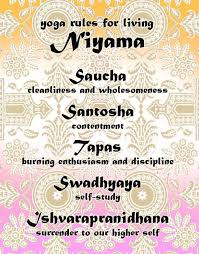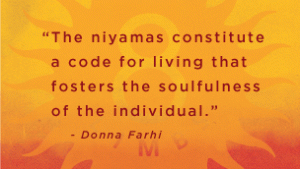The Five Niyamas: Maintaining Peace Within Yourself
By: Steph Ball-Mitchell, ERYT500, RPYT, RCYT, YACEP
By: Steph Ball-Mitchell, ERYT500, RPYT, RCYT, YACEP
This week we journey into the Niyamas, as described in Patanjali's Yoga Sutras.

While the Yamas focused more on our relationships with others, the Niyamas examine our relationship with self. Niyamas pertain to our personal observances and self-discipline.
